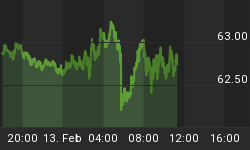Why read: Because globalization is a game-changer for developed country unions and unionized workers, and this is something worth focusing on and thinking about whether you participate in the financial markets or not.
Commentary: 'In the day', as people now say, unions had much more power, particularly in manufacturing industries, than they do today. Where a manufacturing plant was entirely dependant on its local labour force, a union could enable workers in that plant in many instances to realize higher wages and benefits than they otherwise might have without unionization. In the globalized world we now live in, at least some of that 'union negotiating strength' is diminished. This is particularly true where:
-
a multi-national has operations in low-wage rate countries, and realistically can move manufacturing to those countries; and,
-
a company is itself not a multi-national, but competes with multi-nationals. In that case, both non-union and unionized workers have to be affected by the labour rates and benefits paid off-shore by multi-national competitors. Those who work for local (non-multi-national) employers risk losing business on product price, or simply over time being forced out of business.
Unionized employees in service businesses that are local in nature, and can't be so influenced by off-shore labour rates - such as trades-people (carpenters, electricians, plumbers, etc.) - clearly are more protected, and hence are better able to conduct 'business as usual' in an ever more globalized world economy.
This is something to consider if you have not already done that.
Topical Reference: Caterpillar to unions: Drop dead, from The Washington Post, Steven Pearlstein, August 4, 2012 - reading time 4 minutes.
















